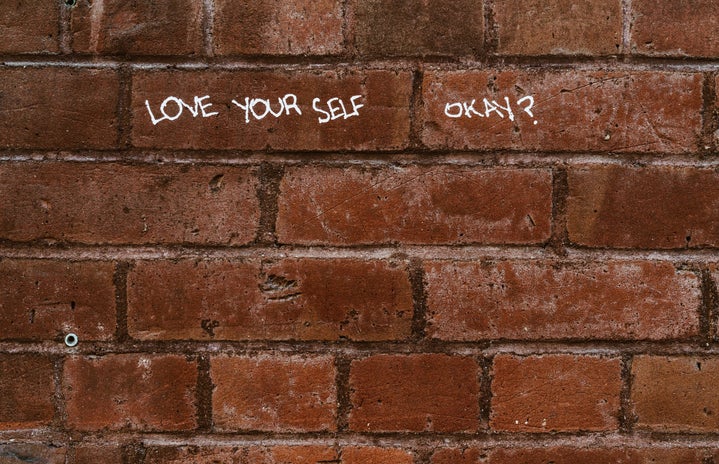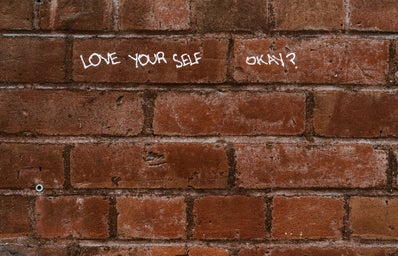Discussion of the Covid 19 pandemic has quickly infiltrated all aspects of our lives. From signs in tube stations to small talk over this ‘new normal’, the events of the past few months have impacted and continue to impact us all significantly. Social media’s role in circulating this discussion has been key, something which I’ve struggled with myself over the course of the past few months. My constant urge to keep updated with current events and stay in contact with those around me hugely conflicted with my need to also take time away, and some of the issues with my own relationship with social media quickly became evident. In particular, the media’s discussion of body image and the damaging effect of this became even more apparent to me.
Knowing that a study recently highlighted how 53% of people felt the lockdown had aggravated body image concerns, I cannot help but question the role of social media and the ideas it perpetuates. Throughout lockdown, it was easy to spend all day mindlessly scrolling on my phone. A quick click on Instagram revealed before and after photos of the ‘Chloe Ting’ challenge and Twitter threads discussed ways to use lockdown free time; whether that be attempting a Couch to 5K challenge or learning how to increase employability. I quickly noticed a pattern between all these trends and the toxic nature of this narrative of ‘lockdown productivity’ which was so prevalent everywhere I looked. This constant flood of voices on social media weighing in on what was important during this time and what we should be doing triggered me to make comparisons between myself and everyone else who seemed to be taking steps to ‘better’ themselves—be that physically or mentally.
Within this focus on ‘productivity’ and self-improvement, the countless posts which I saw discussing how to minimise lockdown weight gain, or the need to maintain pre-lockdown exercise goals, re-stressed to me the problematic nature of the media’s everyday critique of body image. Lockdown left us all with time to increase our screen times and consume social media, and after seeing a recent picture one afternoon that Adele had uploaded onto Instagram, reading the comments revealed to me the ugly reality of society’s attitude to weight. While some applauded Adele’s recent weight loss and how much ‘better’ she looks, others critiqued these recent changes to her appearance, proving that it seems impossible to win in society’s eyes. Through following the media coverage of this subject (which has still continued over the past few weeks), it has saddened me how someone’s body can so quickly become a commenting ground within the public eye. A quick search of ‘Adele’ in Google reveals articles focused on her image, be that speculating the routine and diets used to create her so called ‘transformation’ or ones which describe her ‘showing off’ her new body. In the time of lockdown where many of us viewed our bodies as a point of self-scrutiny, I worry about the effects of our constant exposure to a media that suggests further improvement to ourselves is required.
With this focus on body image so frequent wherever we look, the question of how to solve this issue remains a prevalent one. Later this month, a bill put forward by MPs that would require labelling on photos that had been digitally altered is being reviewed as a solution. Though this bill recognises the deception of many of the images many of us see day to day on social media, it has been argued that it might even aggravate the problem and play a key role in “increasing appearance concerns and body dissatisfaction”, as reported by Amy Slater from the Centre for Appearance Research. While the intentions behind declaring photos altered clearly seeks to combat the damaging effects that photos such as these can have, I wonder whether this truly tackles the root of the problem – why many feel the need to alter their photographs in the first place.
Yet, I hope that changes are being made to change the landscape of unrealistic body standards which are sadly so frequent on an app such as Instagram. Jameela Jamila’s ‘I Weigh’ campaign seeks to establish a platform on social media which elevates the representation and voices of marginalised groups. Posts on the ‘I Weigh’ page display an attempt to move away from an appearance-focused outlook, and break down society’s stereotypes of who and what is deemed ‘worthy’. Recently, my own experience with these body image ideals I saw projected all over my social media led me to make my own conscious effort to examine my feed. I realised I hadn’t even considered the effect of what I was consuming day to day, and tried to determine which Instagram accounts were having a negative effect. By swapping my following to accounts which I felt inspired body confidence and positivity,I aimed to create a social media space which reflected a more diverse and inclusive approach to body image. Examples of some of these accounts I found over lockdown and would recommend following include: Sara Puhto (@saggysara), Msendoo (@kamsendoo) and Chessie King (@chessiekingg) among others.
While it may have taken me a global pandemic to realise this to a full extent, I now understand more fully the value of changing what we see online in order to improve the way in which we perceive ourselves. Though there are many steps yet to be taken to improve the discussion surrounding body image in the wider media, I hope that we can all take away a new lesson on ‘productivity’ from lockdown; one which questions the messages social media projects to us, and redefines the idea that we are enough as we are.


